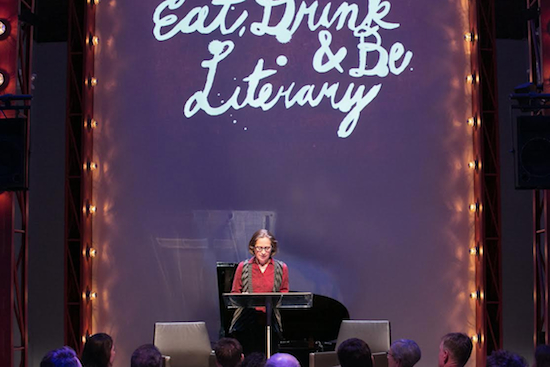Live at BAM: Author Lydia Davis on humor, writing process

Writer Lydia Davis spoke at BAM on Wednesday. Photo by Beowulf Sheehan, courtesy of BAM
When Lydia Davis was a young writer, she was told by her mother that it would be more distinguished to use her first, middle and last name when she published her works — like Louisa May Alcott. But Davis disagreed.
“There are plenty of great writers who only have two names,” Davis said in response to a question from an audience member at the Brooklyn Academy of Music’s (BAM) Eat, Drink & Be Literary series on March 18.
Davis, the author of several short stories and translator of many French works into English, has acquired a significant fan following over the years — as evidenced by the packed room and steady laughter during her reading and Q&A session at Wednesday night’s event.
